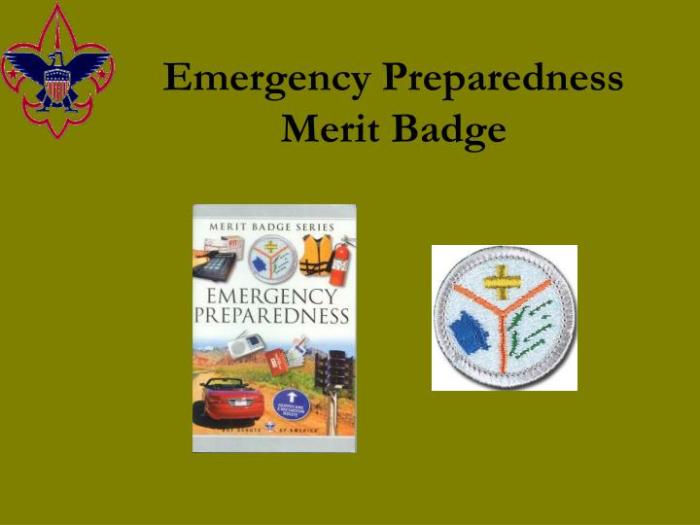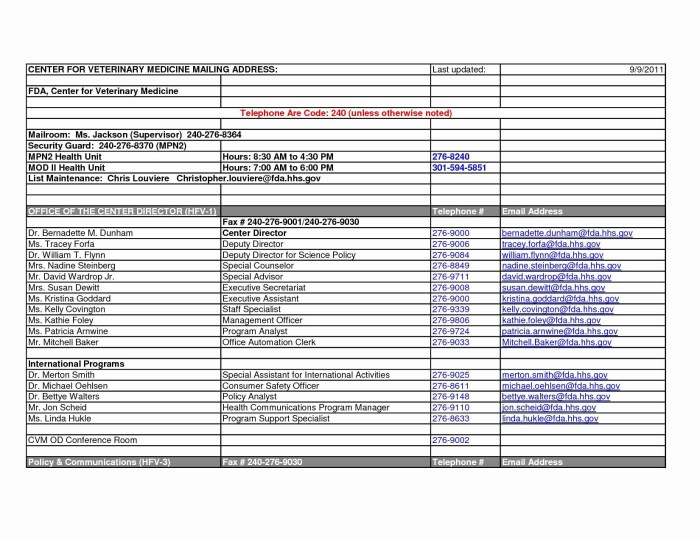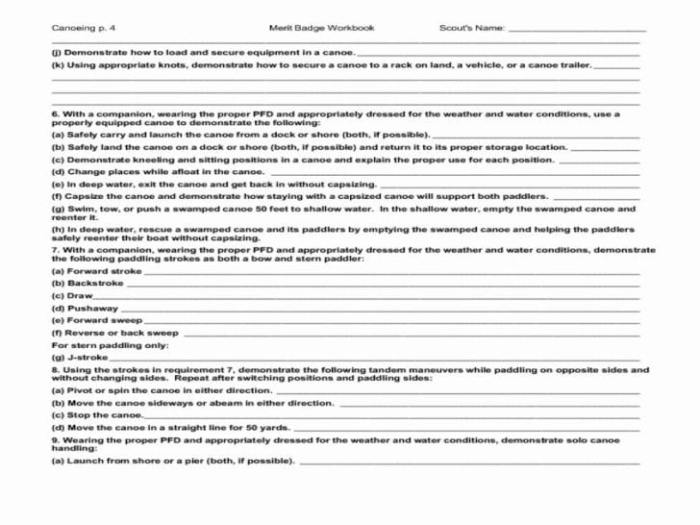The Emergency Preparedness Merit Badge Answer Key provides a comprehensive overview of the requirements, skills, and knowledge necessary to earn this prestigious badge. This guide will equip you with the essential information you need to demonstrate your preparedness for any emergency situation.
This merit badge is designed to teach Scouts the importance of being prepared for emergencies and how to develop a comprehensive emergency plan. It covers a wide range of topics, including natural disasters, first aid, communications, evacuation, and personal preparedness.
Emergency Preparedness Merit Badge Overview

The Emergency Preparedness Merit Badge is designed to help Scouts develop the skills and knowledge necessary to prepare for and respond to emergencies. By earning this badge, Scouts demonstrate their ability to plan, prepare, and respond to a variety of emergency situations, including natural disasters, man-made disasters, and personal emergencies.
To earn the Emergency Preparedness Merit Badge, Scouts must complete the following requirements:
- Define an emergency and identify the different types of emergencies that can occur.
- Develop an emergency preparedness plan for your family and practice it.
- Assemble an emergency preparedness kit and know how to use the items in it.
- Learn basic first aid and CPR.
- Learn how to communicate during an emergency.
- Learn how to evacuate and shelter during an emergency.
- Learn how to stay healthy and safe during an emergency.
The Emergency Preparedness Merit Badge was first introduced in 1972. Since then, it has become one of the most popular merit badges among Scouts. This badge is a valuable asset for any Scout who wants to be prepared for anything.
Natural Disasters and Emergencies
Natural disasters are events that occur naturally and can cause widespread damage and loss of life. Some of the most common natural disasters include:
- Earthquakes
- Floods
- Hurricanes
- Tornadoes
- Wildfires
Man-made disasters are events that are caused by human activity. Some of the most common man-made disasters include:
- Chemical spills
- Explosions
- Fires
- Terrorist attacks
Personal emergencies are events that can happen to anyone, regardless of their age, location, or circumstances. Some of the most common personal emergencies include:
- Medical emergencies
- Car accidents
- House fires
- Lost or stranded
It is important to be prepared for all types of emergencies, both natural and man-made. By being prepared, you can help to protect yourself, your family, and your community.
Emergency Preparedness Plan

An emergency preparedness plan is a document that Artikels the steps that you will take in the event of an emergency. This plan should be tailored to your specific needs and circumstances. However, there are some general steps that everyone should include in their plan:
- Identify the types of emergencies that are most likely to occur in your area.
- Develop evacuation routes and meeting places for each type of emergency.
- Assemble an emergency preparedness kit.
- Learn basic first aid and CPR.
- Identify ways to communicate with family and friends during an emergency.
- Practice your emergency plan with your family.
Once you have developed an emergency preparedness plan, it is important to review it regularly and make updates as needed. This will help to ensure that your plan is always up-to-date and effective.
Emergency Supplies: Emergency Preparedness Merit Badge Answer Key

An emergency preparedness kit is a collection of essential items that you will need in the event of an emergency. The contents of your kit will vary depending on your specific needs and circumstances, but there are some general items that everyone should include:
- Water (1 gallon per person per day)
- Food (non-perishable items such as canned goods, granola bars, and energy bars)
- First aid kit
- Flashlight
- Radio
- Whistle
- Multi-tool
- Duct tape
- Plastic sheeting
- Sanitation supplies (toilet paper, hand sanitizer, soap)
- Important documents (copies of passports, birth certificates, insurance cards)
Once you have assembled your emergency preparedness kit, it is important to store it in a safe and easily accessible location. You should also check your kit regularly and replace any items that have expired.
Query Resolution
What are the requirements for earning the Emergency Preparedness Merit Badge?
To earn the Emergency Preparedness Merit Badge, Scouts must complete the following requirements:
- Explain the purpose and objectives of the Emergency Preparedness Merit Badge.
- Discuss the requirements for earning the badge.
- Provide a brief history of the badge.
- Identify common natural disasters and emergencies that occur in your area.
- Explain the different types of emergencies and their potential impact.
- Discuss the importance of being prepared for emergencies.
- Explain the importance of developing an emergency preparedness plan.
- Provide steps for creating a comprehensive emergency plan.
- Include information on evacuation routes, meeting places, and communication methods.
- Create a comprehensive list of essential emergency supplies.
- Organize supplies into kits for different types of emergencies.
- Discuss the importance of storing supplies properly.
- Provide basic first aid knowledge and skills.
- Explain how to handle common medical emergencies, such as cuts, burns, and sprains.
- Discuss the importance of having a first aid kit.
- Explain the importance of communication during emergencies.
- Discuss different methods of communication, such as cell phones, radios, and social media.
- Provide tips for using technology to stay informed and connected during emergencies.
- Explain the importance of evacuating during emergencies.
- Provide tips for evacuating safely and efficiently.
- Discuss different types of shelters and how to choose the best one for your situation.
- Explain the importance of personal preparedness for emergencies.
- Provide tips for staying healthy and safe during emergencies.
- Discuss the importance of mental and emotional well-being during emergencies.
What are some tips for staying safe during an emergency?
Here are some tips for staying safe during an emergency:
- Stay informed about the latest weather conditions and emergency alerts.
- Have an emergency plan in place and practice it regularly.
- Assemble an emergency kit with essential supplies.
- Be prepared to evacuate your home if necessary.
- Stay calm and follow the instructions of emergency responders.